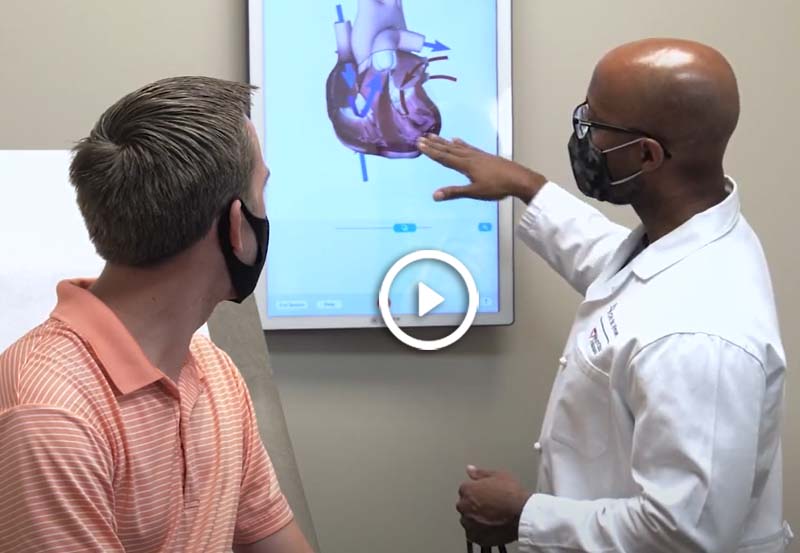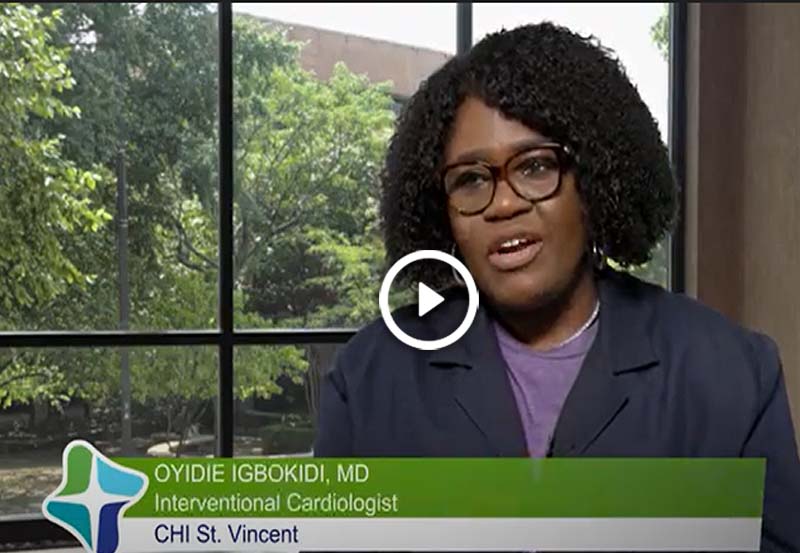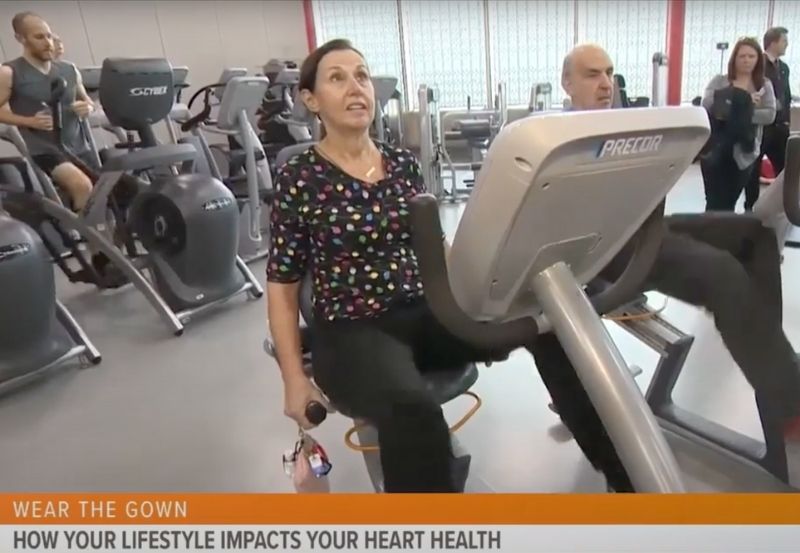
Things like blood pressure, cholesterol level, obesity and smoking can increase the risk of heart disease, but family history is a big factor too. Dr. Stephen Broughton, Interventional Cardiologist, explains how he approaches treatment for these patients.

The CHI St. Vincent HeartSmart Screening Program revealed Patrick had major blockage and required a triple bypass surgery. Patrick said he's fortunate to be alive and credits his doctor for recommending the program.

Dr. Morris Kelley, CHI St. Vincent Heart Institute cardiologist, discusses how overindulging in holiday festivities and the pressures of the season can increase the stress on your heart.

Dr. Morris Kelley, CHI St Vincent Heart Institute cardiologist, discusses how the stress of the holidays can lead to potential heart attacks.

For some patients with atrial fibrillation, the WATCHMAN device can be used to prevent stroke.

As we get older, we’re more at risk for heart disease. And we can’t change our family history or genetics.

Most people have the classic symptoms – chest discomfort, difficulty breathing with activity, leg swelling, excessive fatigue.

Did you know exercise can help prevent heart disease? By getting regular physical activity, you can maintain a healthy weight and lower your blood pressure, cholesterol, and blood sugar levels.

The CHI St. Vincent Heart Institute developed the new HeartSmart Screening Program to help patients identify, manage and treat early signs of heart disease.

Steps to reduce your risk for heart disease shouldn't begin at a hospital. CHI St. Vincent Hot Springs cardiologists share tips to begin the journey to a heart healthy lifestyle at home.

Taking care of your heart health doesn’t just mean receiving quality care when a problem presents itself. Successful treatment for heart disease also relies on early detection and preventative care.

Daily life has certainly changed during the pandemic and for many that includes how they receive heart care. Dr. Anthony Fletcher says we should take this opportunity to refocus on the basics.

Heart disease remains the leading cause of death for women in the United States, accounting for approximately one in every four deaths. Much like it is for men, the key for women is to prioritize a heart healthy lifestyle.

As the leading cause of death in the United States, even more important is the need for early detection and preventative care for heart disease.

Family history is one of the leading risk factors for developing heart disease. Unlike a healthy diet, exercise or tobacco use, you have little control over your family history so it is important to understand its impact on your health.

April is National Humor Month. The goal is to raise awareness of the therapeutic value of humor. As humans, we all share a variety of emotions that impact our psychological and physiological wellbeing.

Maintaining a healthy diet is key to healthy heart. Still, it may not always seem easy to stay on a diet and things happen, but it’s never too late to get back on track.

Along with routine exercise and not smoking, a healthy diet can help improve heart health, but not all fad diets may be good for your heart.

During March, the National Sleep Foundation celebrates the benefits of sleep. Since sleep habits do impact our well-being, it is imperative to make steps toward improving our sleep.

Coronary artery disease is the most common type of heart disease, but can often be prevented with lifestyle changes and routine checkups with a cardiologist.
